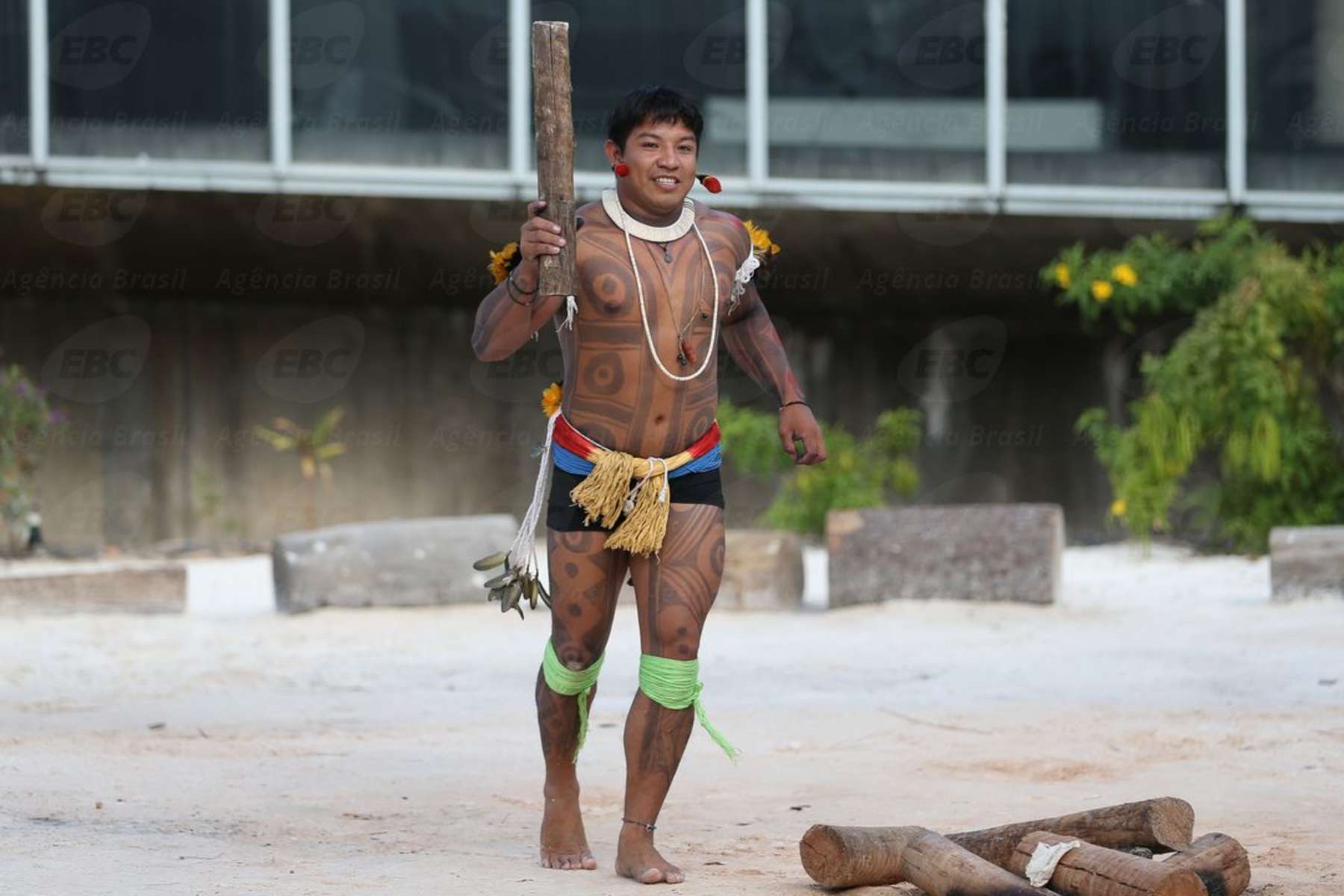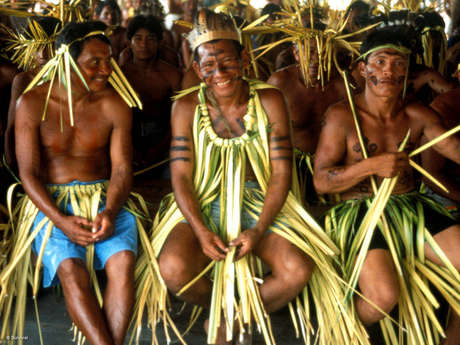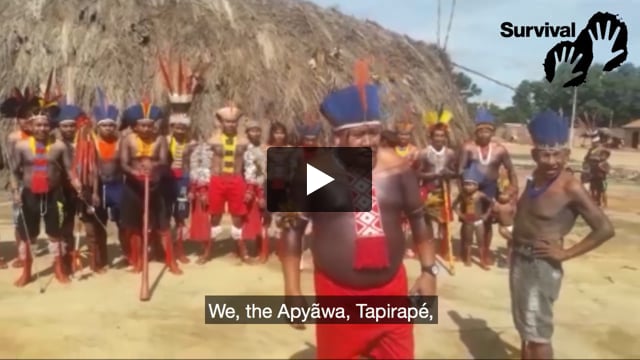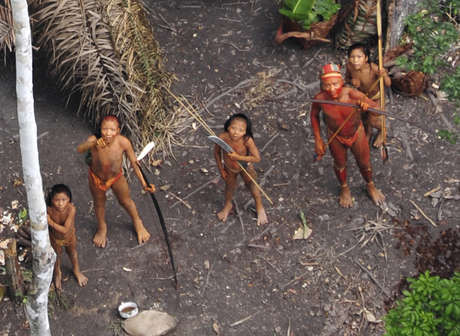Olympics: Tribal man raises Indigenous cause as torch reaches Brazil
May 4, 2016

This page was created in 2016 and may contain language which is now outdated.
A tribal man who is one of the first torchbearers in the run-up to the Rio 2016 Olympics has spoken to the global media about the threats facing Indigenous people across Brazil.
Kamukaiká Lappa, from the Yawalapíti tribe in the Xingu region, carried the torch at the national Memorial to Indigenous Peoples in Brasília on the day it arrived in Brazil. He is known within his community for his involvement in Huka Huka wrestling, an Indigenous sport popular with Xingu tribes.
In an interview on Monday (May 2) Kamukaiká said: “The Olympic games are democracy, they help to promote and celebrate peace.”
Many Indigenous leaders are hoping that tribal involvement in the torch ceremony will help to bring attention to the threats facing their societies. This includes PEC 215, a change to the country’s constitution which, if implemented, could give landowners the chance to block the recognition of new Indigenous territories, and enable them to break up existing ones.
Indigenous spokesman Toya Manchineri said: “PEC 215 means the extinction of Indigenous peoples. Peace is land. Land is our mother, our supermarket and our investment bank. So we won’t allow PEC to move forward.”
He also called for greater support for FUNAI, the Brazilian Indigenous affairs department. FUNAI works to protect uncontacted tribal peoples and to enforce the boundaries of Indigenous territories, such as that recently created for the Kawahiva after an international campaign led by Survival International.
Last month, Survival launched an Olympic year campaign, “Stop Brazil’s Genocide,” highlighting the threats posed to tribal peoples in Brazil.
As well as PEC 215, the campaign also focuses on the Guarani, whose land is being violently stolen in southern Brazil; and the threats to uncontacted tribes, the most vulnerable peoples on the planet, who are being wiped out by violence from outsiders who steal their land and resources, and by diseases like flu and measles to which they have no resistance.
Although the games will take place against the backdrop of other political problems in Brazil, Survival anticipates further Indigenous protests before and during the Rio Olympics.


